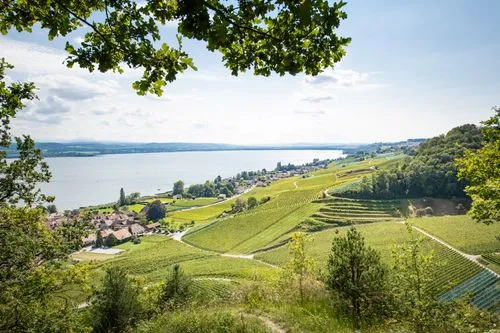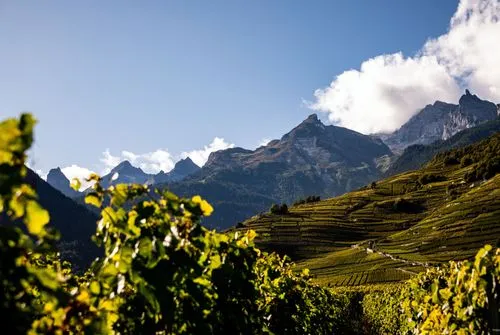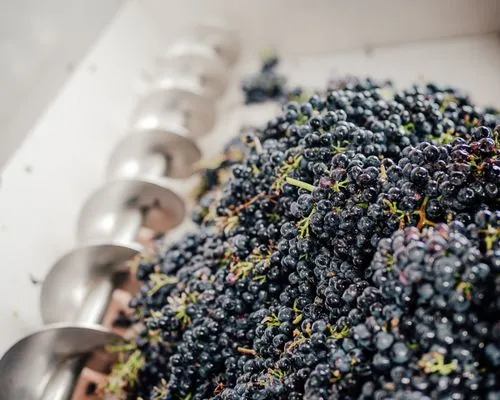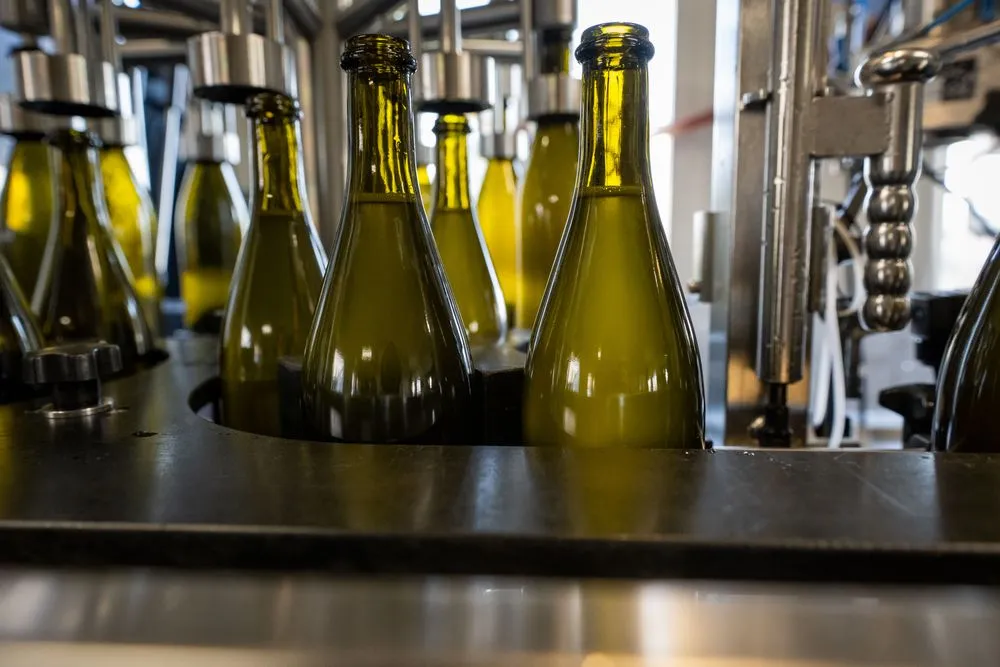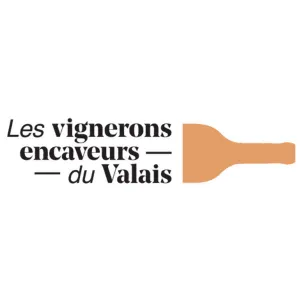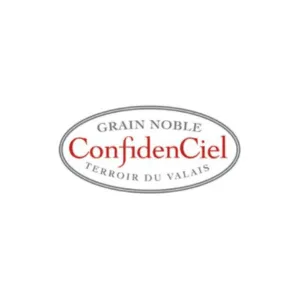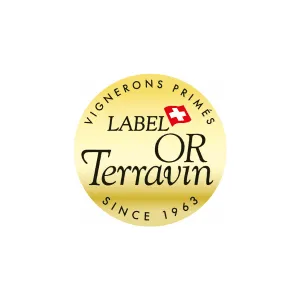In the land of certifications and labels
[]
All aspects relating to winegrowing and oenology are subject to international, national and regional laws. Labels, a guarantee of quality for consumers, are awarded to farms and wines that meet the requirements of a strict specification under the supervision of an independent body. Many bottles feature labels and badges providing information for the consumer regarding the method of cultivation or wine quality.
Medals for international recongnition
Classification labels should not be confused with medals awarded by wine competitions. These competitions, whether they are local, national or international, let producers have their wines assessed by professional judges. The judges do blind tastings (in other words, they do not know who has produced the wine or what region it comes from). In Switzerland, all the competitions respect the directives of the International Organisation of Vine and Wine (OIV), which recommends that medals should not be awarded to more than 30% of the participants.
Notes, evaluations by professionals
Wine notes are evaluations provided by professionals – normally not done with blind tastings – who are wine critics or journalists. These people, for the most part, use a 100-point system, where a good wine will be noted above 85 points, a very good one above 90 points.
Swiss certifications and labels
Switzerland has a national certification: Bio inspecta/Bio test agro, and two main labels: Bio Suisse and Demeter.
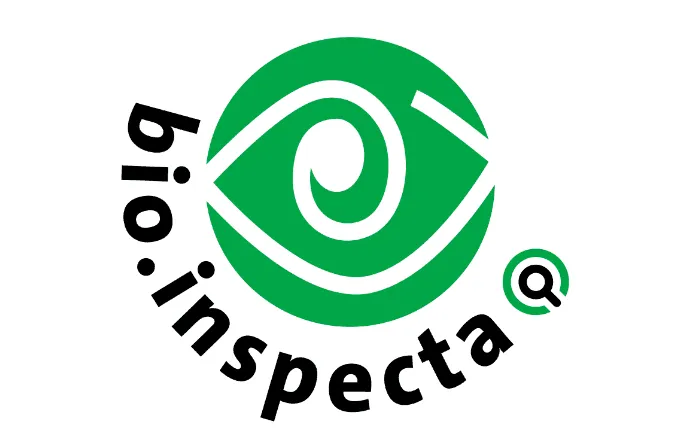
bio.inspecta and Bio test agro
Some estates follow the guidelines of the Organic Farming Ordinance (SR 910.18) which is mostly in line with the European rules on organic farming, EU 2018/848. Less restrictive than Bio Suisse specifications, the Bio Suisse's Bourgeon label cannot be used according to this legislation. When the wine label bears the word "bio", certification according to the Organic Farming Ordinance is mandatory. In this case, the certification body's statement is mandatory. Currently, in Switzerland, there are four accredited certification bodies for organic products: bio.inspecta AG, Bio Test Agro AG, Ecocert Swiss AG and ProCert AG. Certification according to the Federal Ordinance is indicated through an accreditation code, such as bio.inspecta's: CHF-Bio- 006.
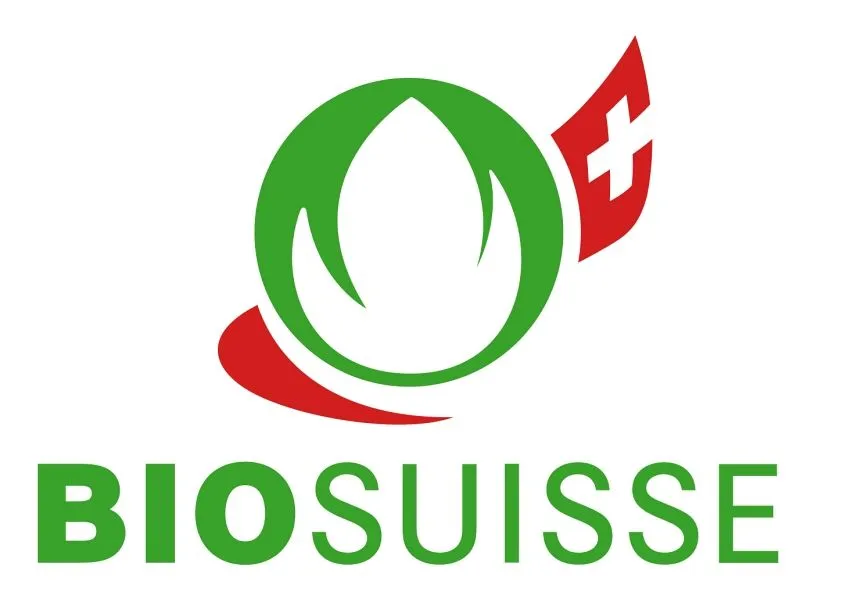
Bio Switzerland - Bourgeon label
In 1981, Bio Suisse created the Bourgeon label, arguably the best known. This label goes beyond international provisions and the Federal Ordinance on Organic Farming. The entire estate must be organically farmed. In order to promote biodiversity, 7% of the estate's land must be pasture, dry stone walls, hedges or trees. So that the vine is protected from diseases and pests, Bourgeon winegrowers pay particular attention to natural processes favouring the populations of useful insects. As they do not use synthetic pesticides or chemical fertilizers, soils retain all their character and fertility. In the cellars, winegrowers are entitled to three times less additives or treatments than their European organic counterparts. For winemaking, only a few natural additives are expressly allowed. Today, more than 540 Swiss estates bear this label.
Since 2024, Bio Suisse has been working with Swiss Wine to develop a module on organic wines. The module is available free of charge on the Swiss Wine Campus platform.
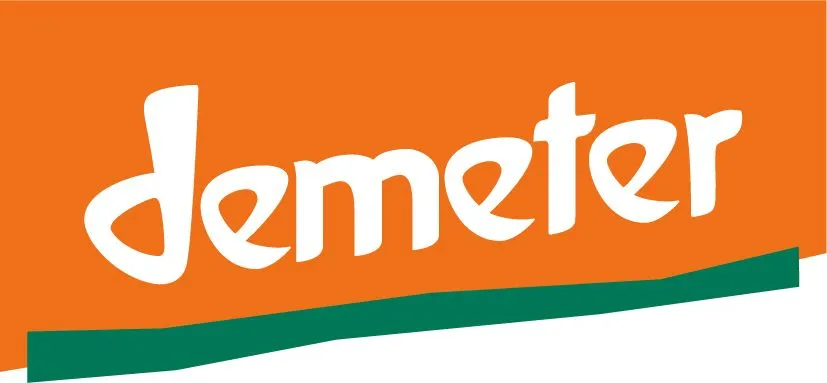
Demeter
Demeter is the label for wine from biodynamic cultivation certified according to Demeter regulations. Biodynamic cultivation strengthens the soil, plants, animals and people. As well as using organic production and promoting ecological diversity in the vineyard, biodynamic producers energize the life of the soil and strengthen the vines with biodynamic preparations. The cellar only offers very few possible corrective measures. This is why the quality of the grapes and meticulous work in the vineyards and cellar are of paramount importance.
Currently, around 60 farms are Demeter certified.
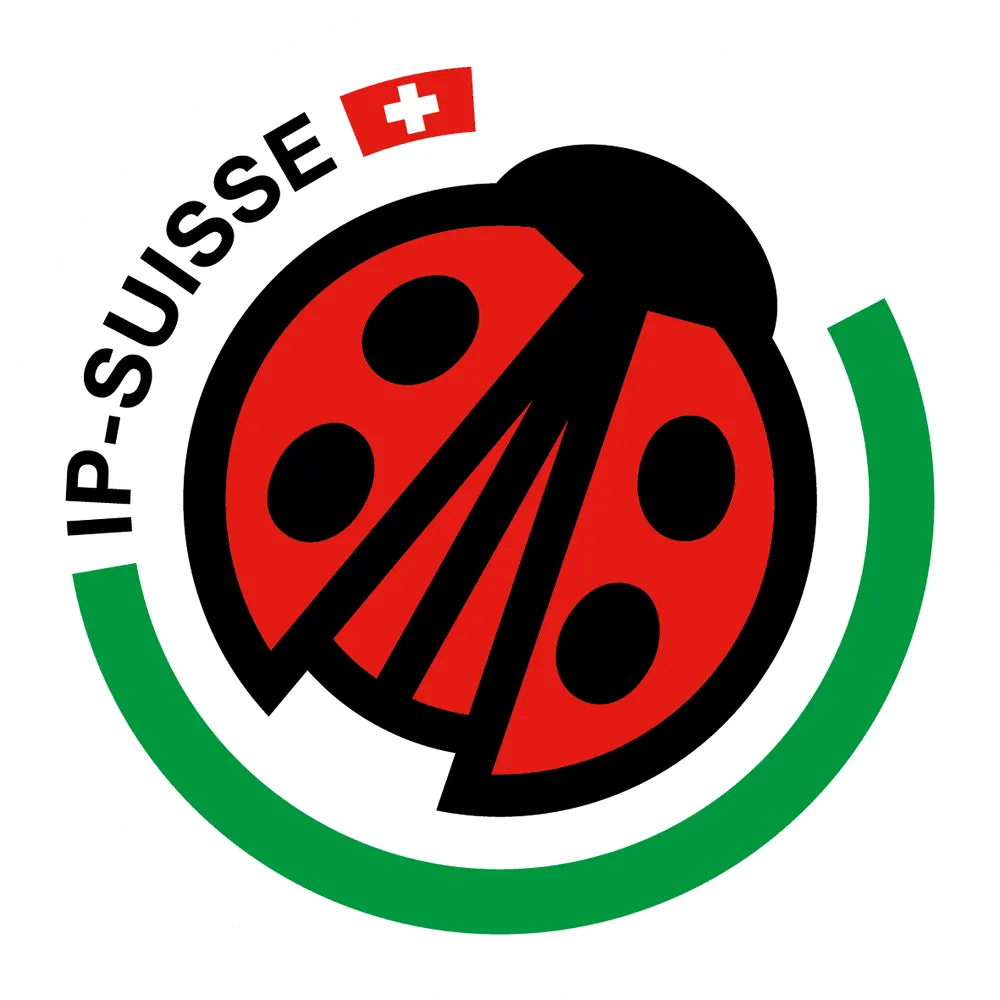
IP-Suisse
The IP Suisse ladybug is the logo that distinguishes the products which respect standards (very similar to those of Vinatura) set by the Swiss Farmers Association of farmers practising integrated production. Starting in 2022, Swiss wines with the ladybug IP-Suisse label will be carried by a nationwide Swiss distributor. This programme, developed as the result of a proposal by WWF Switzerland, has two objectives: reduce the use of phytosanitary products and promote biodiversity, thanks to more green cover and by increasing the surface area of vineyards that focus on biodiversity.
As well as these certifications and labels, charters guarantee the quality of Swiss wines.
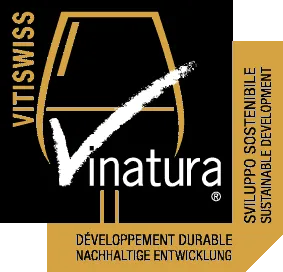
Vinatura
VITISWISS (Swiss Federation for the Development of Sustainable Viticulture( was mandated by the Federal Office of Agriculture (FOAG) to draw up guidelines for obtaining proof of ecological performance (PEP) in viticulture. By defending the values of Swiss winegrowing through its VINATURA® label, it's a reference for consumers wishing to buy products that comply with the fundamental principles of sustainable development.
Vin Nature
Established on 11 January 2021, the Association Suisse Vin Nature (ASVN) aims to defend the promotion of Natural Wine. Its aim is to support and advise producers in vinifying this type of wine and to highlight the great diversity of natural wines, in terms of their taste, smell, appearance, and creative expression.
Its mission is to provide information and popularize this gentle winemaking process using organic grapes whithin the profession and to demonstrate that it's possible to produce high-quality living wines, without additions. ASVN wants to be the reference contact regarding natural wines in Switzerland and to promote the great variety of these wines.
Regional labels
To visit our site, you must be of legal drinking age in your country of residence.

